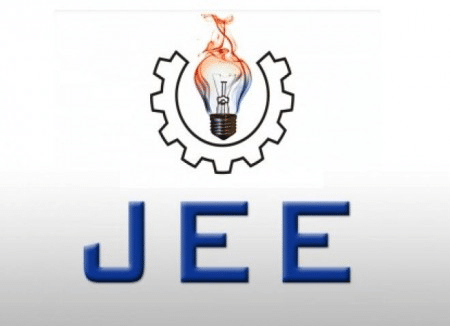What is JEE?
Joint Entrance Examination (JEE) is an engineering entrance examination conducted for admission to various engineering colleges in India. It is constituted by two different examinations - JEE Main and the JEE Advanced. The exams are of the objective pattern. JEE Advanced is regarded internationally as one of the most challenging undergraduate admission tests.
In 2012, the government-run Central Board of Secondary Education (CBSE) that earlier conducted the AIEEE, announced the JEE that replaced the AIEEE and IIT-JEE. The JEE-Main, which replaces AIEEE, is for admission to the National Institutes of Technology (NITs), Indian Institutes of Information Technology (IIITs), and some other colleges designated as "centrally funded technical institutes" (CFTIs) The JEE-Advanced, which replaces IIT-JEE, is for admission to the Indian Institutes of Technology (IITs). Only the students selected in JEE Mains are eligible for appearing in JEE Advanced. About 2,24,000 Top students will be selected from 2018.
There are some institutes like the Indian Institutes of Science Education and Research (IISERs), Rajiv Gandhi Institute of Petroleum Technology, and the Indian Institute of Science which use the score obtained in JEE Advanced as the basis for admission. These are not participating institutes of central IIT JEE Advanced counseling of which all IITs are members. Any student who takes admission to IITs cannot appear for the JEE-Advanced exam in the next year, but the same is not the case with IISc, IISER, RGIPT and other institutes as these institutes only use JEE Advanced score for admission.

In September 2013, the IIT Council approved the decision of the Joint Admission Board to continue with the two-phase JEE pattern ("Main" followed by "Advanced") for IITs in 2014. Joint Seat Allocation Authority (JoSAA) conducted the joint admission process for a total of 23 IITs, ISM, 32 NITs, 18 IIITs and 19 other Government Funded Technical Institutes (GFTIs).
As per the reports from Ministry of Human Resource Development (MHRD) of Government of India, the government is considering to conduct only one common engineering entrance test based on the lines of NEET for all engineering colleges, including private institutions, across India.
JEE Main:
JEE Main has two papers, Paper-1 and Paper-2. Candidates may opt for either or both of them. Both papers contain multiple choice questions. Paper 1 is for admission to B.E./B.Tech courses and is conducted in both online and offline modes. Paper-2 is for admission in B.Arch and B.Planning courses and is conducted offline only.
JEE Main, unlike JEE Advanced, has a fixed exam structure and is not subject to change every year. Paper-1 is of three hours duration and consists of thirty multiple-choice (single-correct) questions in each of the three subjects (physics, chemistry, and maths). There is negative marking for incorrect answers. 4 marks are awarded for correct answers and 1 mark is deducted for incorrect answers.
From 2013 to 2016, the marks obtained in the class XII school board examination used to be accorded a 40% weightage in deciding the JEE Main all India ranks.
From 2017, CBSE made Aadhar card mandatory for students applying for JEE. Students not having the card were asked to register for it before applying for JEE.
JEE Advanced:
Students who qualify JEE-Main can appear for the JEE-Advanced examination. In 2018, 224,000 students will be allowed to appear for JEE-Advanced, a number that had gone up from 220,000 in 2017 and 200,000 in 2016.
JEE Advanced 2018
JEE Advanced 2018 is going to be held on 20th May by IIT Kanpur and be completely online. [15]
JEE Advanced 2017
JEE Advanced 2017 was conducted on 21 May 2017 by IIT Madras.[16]
JEE Advanced 2016
In 2016, the JEE Advanced exam was held on May 22, 2016. The exam carried a total of 372 marks with each paper carrying 186 marks. The level of difficulty of questions was increased to a larger extent. Moreover, number of integer type questions (having no negative marking) were reduced. The paper was set up in collaboration of different IITs with the principal organiser being the IIT Guwahati. The Physics paper was set by IIT Madras, Mathematics by IIT Guwahati and the Chemistry portion was jointly set by IIT Bombay and IIT Delhi. These features made this paper the toughest ever JEE Paper till date. The paper had a huge surprise of partial marking in multiple correct choices where if a student marked some but not all correct answers without marking the wrong ones, he/she would be awarded one mark for each correct option.
JEE Advanced 2015
JEE Advanced 2015 was held on May 24, 2015. The two papers were of 504 marks overall, a sharp increase from the regular trend of about 360 marks. Changes in examination pattern surprised students nationwide. There were no single correct multiple choice questions at all; all of them were multi-correct. The level of negative marking was also increased.
According to the statistics released by IIT Bombay, which conducted the exam, 26,456 out of the 1,17,238 candidates who appeared in the test were shortlisted for admission to IITs. 23,407 male candidates qualified, outnumbering 3,049 female candidates.
History:
The JEE pattern has undergone many changes. Since 2010 candidates are given paper copies of their answers, and cutoffs are announced. This transparency was achieved after a tenacious legal tussle waged by IIT Kharagpur professor Rajeev Kumar, who was nominated for the National RTI Award 2010 for his crusade. Since 2013-14, JEE has changed a lot and recently adopted new online admissions and application selection procedures which were not available in recent years.
JEE Main counselling:
Earlier, counselling for JEE main was conducted through CSAB but now officials have made changes in the counselling procedure. The JAB (Joint Admission Board), representing IITs and CSAB (Central Seat Allocation Board), are making agreements on the behalf of NITs and other CFTIs, and are now united to conduct a counselling (common counselling) for the two exams of JEE. The memo for the same was signed on May 2, 2015. These two together will be known as the Joint Seat Allocation Authority (JoSAA).
No Changes in JEE Main 2017 except that Board Marks will not be considered for normalisation and A.I.R will strictly be based on JEE Scores. As per the official changes made in Eligibility Criteria of JEE Advanced, 12th Marks will not matter for appearing in the exam.
FAQs on What is JEE?
| 1. What is JEE? |  |
| 2. How many times is JEE conducted in a year? |  |
| 3. What is the eligibility criteria for JEE? |  |
| 4. How is the JEE Main exam conducted? |  |
| 5. What is the syllabus for JEE Main? |  |


















